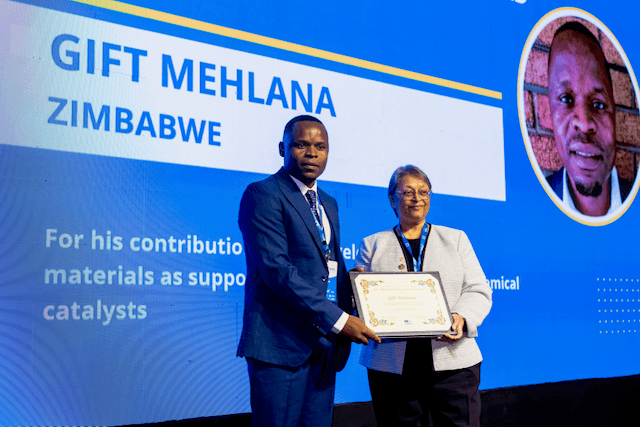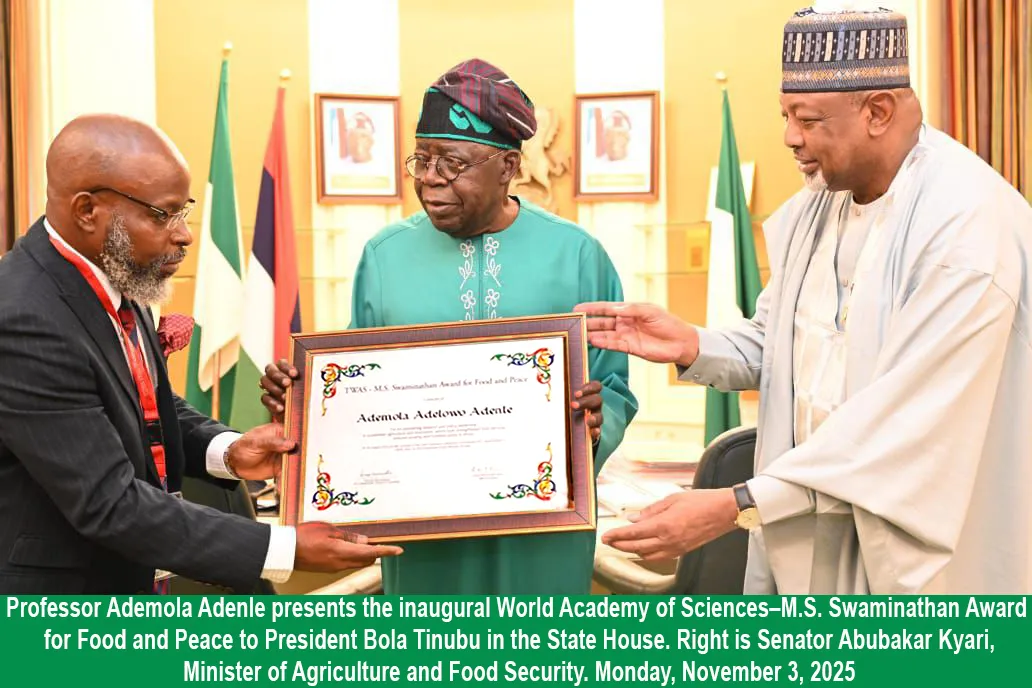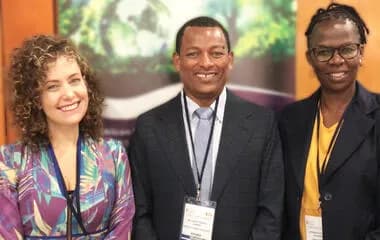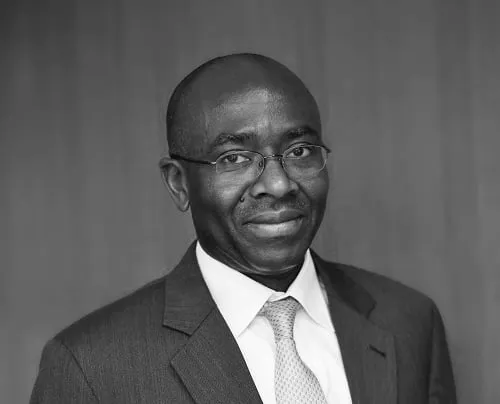News
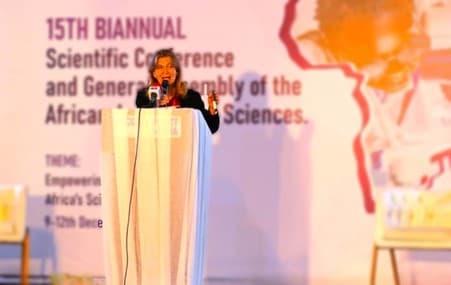
Rebuilding the confidence in science in Africa, the mobilisation of resources to invest in the continent’s scientists, strategies to unlock global publishing opportunities for African researchers and the potential of science, technology and innovation to bridge the digital divide were themes that came to the fore as the African Academy of Sciences (AAS) convened its 15th General Assembly and Scientific Conference in Abuja, Nigeria, earlier in December in a forum under the theme ‘Empowering and Advancing Africa’s Scientific Enterprise’.
Some of the key objectives of the conference were to address the role of science academies as institutions of national and regional development, and to formulate key recommendations for elevating the work of the AAS in advancing scientific excellence and competitiveness in the region.
The event united more than 1,000 leading scientists, policymakers and higher education stakeholders to discuss the region’s scientific and developmental future, discuss policy and practice matters, including the investment in science, technology and innovation (STI) infrastructure, as well as science, technology, engineering and mathematics (STEM) education, and diaspora engagement.
With examples from the Network of African Science Academies (NASAC) and the Nigerian Academy of Science (NAS) there was a strong call from established scientists for the collaboration of regional networks of academies in building an agenda to deliver science to society through the acquisition and dissemination of sound scientific knowledge and its use in solving pressing regional challenges.
A ‘leading organisation’
Professor Friday Okonofua, the secretary general of the AAS, underscored that, since its inception in the 1980s, the AAS had grown into a leading pan-African institution, nurturing the next generation of African scientists and establishing itself as a vital community of science scholars.
Its fellows and researchers were at the forefront of groundbreaking research and innovation, addressing critical issues such as climate change, governance, health, data, demographic transition, youth empowerment, and vaccine development.
He expressed optimism that the scientific conference would spearhead the role of academies, particularly that of the AAS, in advancing scientific development in Africa.
“This year’s conference is deliberately comprehensive, with the objective to rebrand the academy and enhance its impact on Africa’s development,” he stated.
Towards sustainable development
In her keynote address, Professor Lise Korsten, the president of the AAS, reaffirmed the academy’s mission to drive Africa toward sustainable development through science and innovation.
She further highlighted Africa’s remarkable progress in scientific productivity, citing an increase in scientific publications between 2014 and 2022. However, she emphasised the need to build on these achievements by strengthening collaboration and networks to meet global research standards and take up the World Bank’s challenge of training 10,000 PhDs across the continent within the next decade.
The AAS was committed to consolidating gains in STI and addressing challenges, such as mobility and visa restrictions, to bolster research leadership and innovation.
“At the heart of our academy lies a profound commitment to accelerate Africa’s sustainable development through science and innovation. Since 2015, the AAS, with a mandate from the African Union, has been working tirelessly to drive the Sustainable Development Goals (SDGs) in Africa through STI.
“Africa had made progress in the number of publications, recording a 135% increase in the number of publications from 73,000 in 2014 to about 171,000 in 2022. But that is not enough. We need to accelerate that pathway to unlock and enable our scientists to publish the top papers in the world. We need to ensure that Africa gets closer to the rest of the world in capacities for research and innovation,” she stated.
Advancing Africa’s research agenda
Korsten identified the Pact for the Future, launched in September 2024 during the United Nations Summit of the Future, as a pathway towards achieving the SDGs and to respond to emerging global challenges and opportunities.
She also noted that the Pact for the Future and the Global Digital Compact were essential levers in driving science, technology and innovation, to bridge the digital divide, particularly in Africa and enabling the responsible use of technologies.
“As Africa embarks on the next 10-year implementation period of its STI strategy, the AAS avails itself of this opportunity to consolidate the gains made to continue advancing Africa’s research and innovation agenda.
“Specifically, the AAS will work to strengthen inter-Africa research and focus on enhancing researchers’ mobility, addressing challenges around resources and international STI partnerships to build African capacities for employment, leadership and scientific productivity,” she added.
The Science, Technology and Innovation Strategy for Africa 2024 (STISA 2024) places science, technology and innovation as a driver of Africa’s socio-economic development and growth, and situates it as a tool and enabler for achieving Africa’s development goals.
Advancing Africa’s scientific enterprise
During another keynote address, Professor Kevin Chika Urama, the vice president of the African Development Bank Group, highlighted that, by harnessing science and technology, African countries had a stronger chance to deal with many of its challenges including poverty, disease and environmental destruction.
He discussed the importance of the African Manifesto for Science, Technology and Innovation, a tool for shaping shared visions about science, technology and innovation, which has helped to advocate for less developed countries to have their own indigenous scientific capacity, including “socialisation and democratic governance of STI as a prerequisite for sustainable development in Africa”.
The socialisation of STI relates to the embedding of STI in social environments to cement the place of STI within society.
He emphasised the need for a mindset change in order to empower and advance African scientific enterprise in a growing multipolar world.
“We must rebuild confidence in African science, by Africans, for Africa’s development. We must mobilise resources to invest in the soft Infrastructure needed to empower African scientists to focus on research and development for factor productivity enhancements across sectors: agriculture, health, energy, ICT and others,” he said.
Factor productivity represents the contribution to economic growth made by managerial, technological, strategic, and financial innovations.
To advance Africa’s scientific enterprise, there was a need to rebuild confidence in Africa’s science, technology and innovations and in African scientists’ capacity to provide local solutions to Africa’s development challenges.
“Our science must be solution-oriented, not textbook-focused. African scientists must reform the agenda for science and education to refocus on factor productivity improvements, value creation, and positive social re-engineering. If African science effectively provides solutions to Africa’s development challenges – it will be bankable.
“To empower and advance the African scientific enterprise, African scientists must learn to demystify science, tunnel through or break open the black box, and make science more inclusive, productive, understandable and accessible to all Africans,” Urama added.
Original article written by Eve Ruwoko and published in University World News
